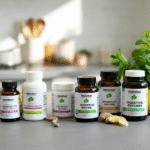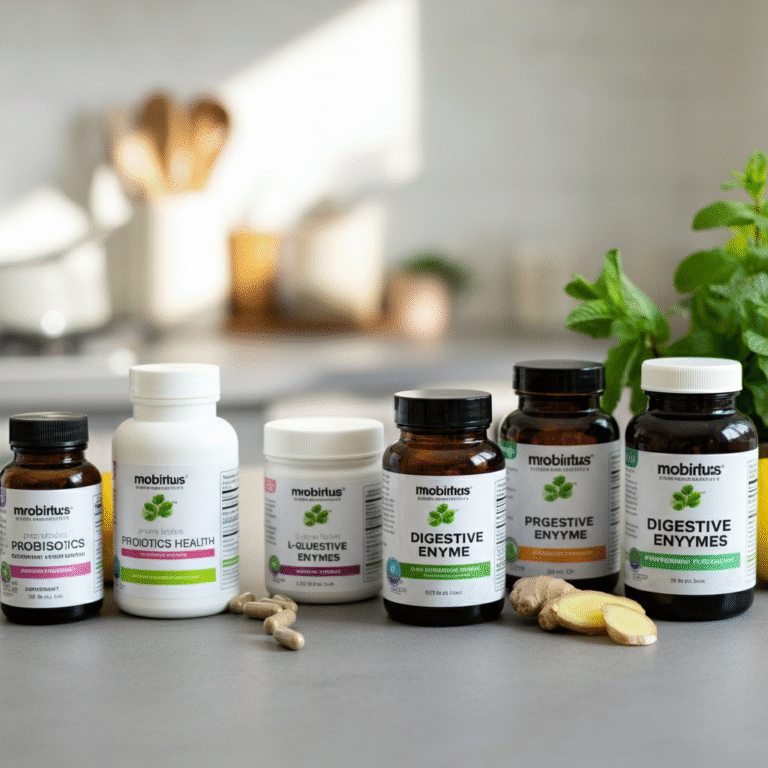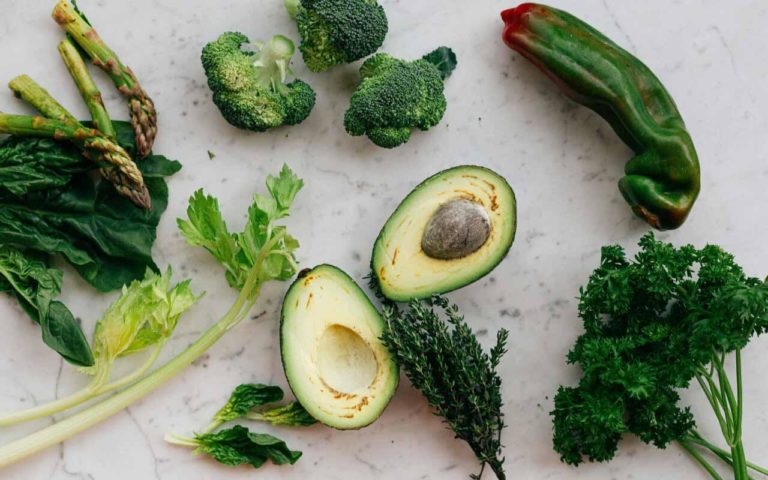Introduction to Gut Health and Its Importance Your gut is more than just a digestive system; it’s a powerhouse of health that impacts everything from your mood to your immune system. Scientists often call it your "second brain" due to its profound connection with the rest of your body. But with modern diets overloaded with processed foods, stress, and environmental factors, maintaining gut health has become more challenging than ever. If you’re eager to make your gut a priority, this guide dives deep into the science of gut health, common issues, types of supplements available, and practical lifestyle changes to help your gut thrive. Understanding the Gut Microbiome and Its Functions At the heart of gut health lies the gut microbiome. It’s a bustling community of trillions of microorganisms living in your digestive tract. These bacteria, fungi, and other microbes play critical roles, including: Breaking down food: They help digest complex carbohydrates and fiber, producing nutrients your body can absorb. Boosting immunity: Your gut is home to about 70% of your immune cells, forming a defensive shield against diseases. Producing mood-regulating chemicals: You can thank your gut for producing serotonin and other neurotransmitters that influence your mood and mental health. Supporting metabolism: Your gut microbes contribute to calorie burning and energy balance. When your gut microbiome is healthy and balanced, it keeps you feeling your best. But what happens when something disrupts this balance? Common Gut Health Issues and Symptoms An unhealthy gut can lead to a cascade of troubling …
Introduction to Gut Health and Its Importance
Your gut is more than just a digestive system; it’s a powerhouse of health that impacts everything from your mood to your immune system. Scientists often call it your “second brain” due to its profound connection with the rest of your body. But with modern diets overloaded with processed foods, stress, and environmental factors, maintaining gut health has become more challenging than ever.
If you’re eager to make your gut a priority, this guide dives deep into the science of gut health, common issues, types of supplements available, and practical lifestyle changes to help your gut thrive.
Understanding the Gut Microbiome and Its Functions
At the heart of gut health lies the gut microbiome. It’s a bustling community of trillions of microorganisms living in your digestive tract. These bacteria, fungi, and other microbes play critical roles, including:
- Breaking down food: They help digest complex carbohydrates and fiber, producing nutrients your body can absorb.
- Boosting immunity: Your gut is home to about 70% of your immune cells, forming a defensive shield against diseases.
- Producing mood-regulating chemicals: You can thank your gut for producing serotonin and other neurotransmitters that influence your mood and mental health.
- Supporting metabolism: Your gut microbes contribute to calorie burning and energy balance.
When your gut microbiome is healthy and balanced, it keeps you feeling your best. But what happens when something disrupts this balance?
Common Gut Health Issues and Symptoms
An unhealthy gut can lead to a cascade of troubling symptoms and health issues. Some common red flags include:
- Bloating and indigestion: You may struggle to digest certain foods effectively.
- Fatigue and brain fog: A weakened microbiome affects energy levels and mental clarity.
- Weakened immunity: Frequent colds or slow recovery may point to gut health problems.
- Skin issues: Problems like eczema or acne can often trace back to inflammation in the gut.
- Sudden weight change: Both unexpected weight loss and gain can result from an imbalanced microbiome.
If you’ve experienced any of these issues, gut health supplements might make a difference.
Overview of Different Types of Gut Health Supplements
When it comes to improving gut health, supplements act as reinforcements for your microbiome. Here’s an overview of the most commonly used types:
- Probiotics: These are live “good bacteria” that restore balance in the gut.
- Prebiotics: These are plant fibers that feed your beneficial gut bacteria, helping them flourish.
- Digestive enzymes: These enzymes assist in breaking down proteins, fats, and carbohydrates for easier digestion.
- Fiber supplements: Often derived from psyllium husk or acacia, they support regular bowel movements.
- Gut-healing powders: Popular options like L-glutamine help strengthen the gut lining and reduce inflammation.
While these supplements can be game-changers, not all are created equal. Selecting one depends on your unique gut challenges.
Detailed Review of the Best Supplements for Various Needs
For General Gut Support
- Probiotic Blend (e.g., Culturelle Probiotics): Backed by strong clinical evidence, this supplement contains Lactobacillus and Bifidobacterium strains, essential for digestive and immune health.
For Chronic Bloating
- Digestive Enzymes (e.g., Enzymedica Digest Gold): Combat bloating and gas by breaking down proteins, carbs, and fats. This supplement is ideal for anyone suffering from indigestion after meals.
For Gut Lining Repair
- L-Glutamine Powder (e.g., Pure Encapsulations L-Glutamine): This amino acid is a top choice for improving leaky gut syndrome by supporting a healthy gut lining.
For Fiber Deficiency
- Fiber Supplements (e.g., Benefiber Prebiotic Powder): Easy to incorporate into drinks and meals, this supplement provides both soluble and prebiotic fibers that encourage healthy digestion.
For IBS Relief
- Peppermint Oil (e.g., Heather’s Tummy Tamers): Known to soothe muscle spasms in the intestines, this can reduce symptoms of irritable bowel syndrome (IBS).
Consult your healthcare provider before adding any new supplement to your routine to ensure it’s the right fit for you.
Lifestyle and Dietary Tips to Support Gut Health
Supplements can help, but they work best alongside smart lifestyle changes. Here’s how to naturally nurture your gut:
- Increase whole, plant-based foods: Fruits, vegetables, and legumes are rich in fiber, your gut bacteria’s favorite food.
- Reduce sugar and processed foods: These can trigger inflammation, harming beneficial microbes.
- Eat fermented foods: Yogurt, kimchi, miso, and kefir provide probiotics naturally.
- Stay hydrated: Proper hydration supports smooth digestion and toxin removal.
- Practice stress management: Chronic stress affects gut-brain communication. Try mindfulness, meditation, or yoga.
- Exercise regularly: Physical activity encourages better digestion and microbial diversity.
Consistency is key when incorporating these habits into your daily routine.
Expert Opinions and Recommendations
Gut health specialists around the world emphasize the importance of tailoring solutions to individual needs. According to Dr. Megan Rossi, a registered dietitian known as the Gut Health Doctor, “Variety is the most important factor when it comes to gut health. Aim to consume 30 diverse plant foods each week.”
Similarly, Dr. Robynne Chutkan highlights the gut’s role in overall health, suggesting, “Focus on feeding your microbes what they need to succeed, like prebiotics and fiber.”
Leading science underscores that it’s never too late to begin fostering a healthier gut—but starting today is always the best option.
Looking Ahead at Gut Health Research
The science behind gut health is evolving rapidly. Studies are now exploring connections between your gut health and conditions like anxiety, depression, and autoimmune diseases. Researchers are also investigating precision probiotics designed to target specific problems.
What’s clear is that prioritizing your gut is not a trend; it’s an essential pillar of your overall well-being. Use the tips and supplements mentioned here to get started on your gut health transformation today.
Sign up for free class
It’s easy and free!










